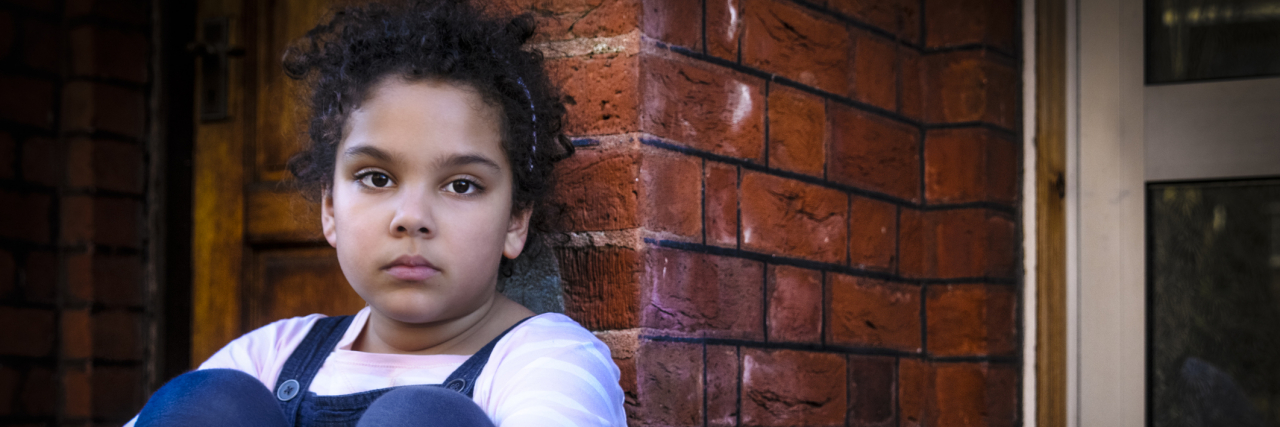My Mother Neglected Me as a Child. Now, I Can’t Communicate My Pain
Editor's Note
If you’ve experienced emotional or sexual abuse or assault, the following post could be potentially triggering. You can contact the Crisis Text Line by texting “START” to 741741. You can contact The National Sexual Assault Telephone Hotline at 1-800-656-4673.
My mother’s medical neglect of me as a child inhibits my ability to communicate my current physical pain, and therefore leads to not asking for help when I need to heal.
I do not know how to communicate my own pain.
I recently have been having excruciating back pain. I have been in physical therapy for it, but with no improvement. My doctor decided I needed radio frequency ablation (RFA). That entailed doing a pain block to test if the RFA was going to work. I went to the surgery center, and they did a pain block. It was supposed to last six hours. In those six hours I was supposed to every hour on the hour, do an activity that typically would hurt my back. I was to track my pain on a scale of one to 10 and report every hour. The block did not work.
The hardest part, though, was communicating my pain level every hour. I could not figure out how to communicate how much pain I was in. I kept thinking, “It must not be that bad. I am imagining things.” I also did not think the doctor would believe me that the block did not work. I was programmed to deny my reality and minimize my physical pain to the comfort of my mother. I also learned to not complain.
See, my mom did not care for sick children.
My mother told me when I had a headache that I needed to take an aspirin and do the dishes. I was having migraine. When I sprained my ankle playing softball, she would not take me to the doctor, but tell me to shake it off. When I was throwing up and did not make it to the bathroom, she made me clean it up while I was still sick. If I had a fever, she would give me a fever reducer and send me to school anyway.
She always exclaimed she could not miss work for a sick child. One morning, I woke up vomiting. I could not stop. She kept having me change clothes when she finally figured out I was too sick for school she packed me up took me to my aunt’s house, gave me a bucket, some crackers and water and left me there alone. I guess she felt it was better than leaving me at home since my aunt had a house alarm. I was 11 years old. This was the day after I had been raped by my teacher (I did not tell her).
I have the hardest time asking for help when I am sick, when I am in pain. Even in physical therapy, my therapist asks if something we did made me feel better, and I always say yes just so she does not feel bad whether I feel better or not.
I do not trust care and compassion. It feels fake to me, and that the person is not being genuine and I do not deserve it. My mother taught me asking for help was not an option or welcome. I needed to suffer in silence.
Having my pain denied has also led to me not being able to empathize when someone else is in pain. When my daughter had foot surgery she was complaining about the pain, my instinct was to tell her she was not in pain and should stop complaining. Instead, I made myself think about how they had to go into her foot and place metal rods and all the muscles that had to be disturbed. This was the only way I could have any empathy for her. This has been a disturbing side effect of my mother’s medical neglect.
I have made a commitment to healing me.
In this past year, I made a commitment to care for myself and deal with all my chronic pain. I want to feel good in my body, be able to move and groove like others. I have decided to ask for help. To say, “This hurts and I deserve to be pain free.” I am not used to asking for help and I have been so disconnected from my body all these years it is hard to articulate what is wrong with me. I have amassed a team of doctors to help me on my journey back to health. I am going to find the language that communicates what hurts and what I need from my treatment team.
Those of us with chronic pain deserve relief and caretaking. There is no reason for us to be denied help. I am not lying about my pain. I am not a liar. I am a woman with pain who deserves support.
Even with chronic pain, I am Mighty Strong!
Getty image by onebluelight

